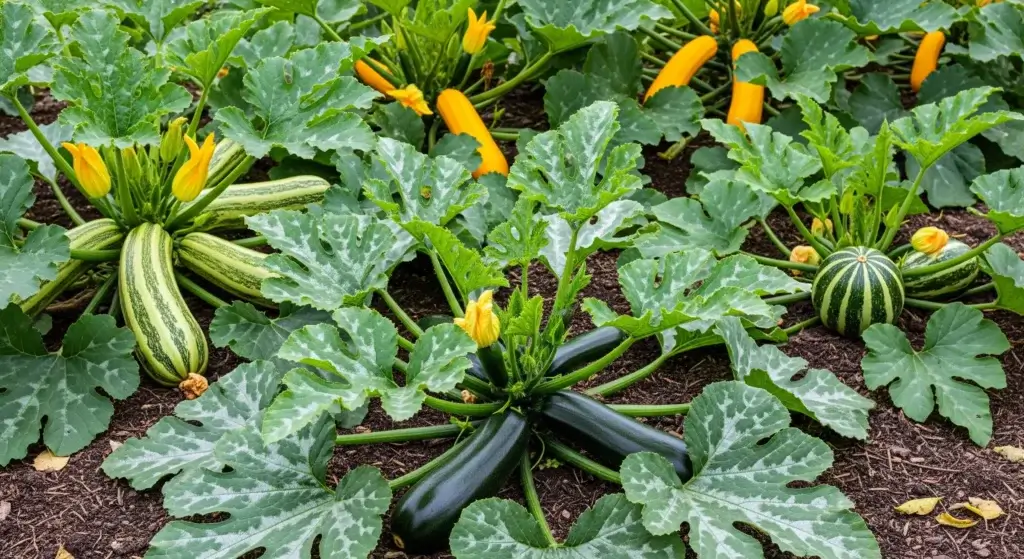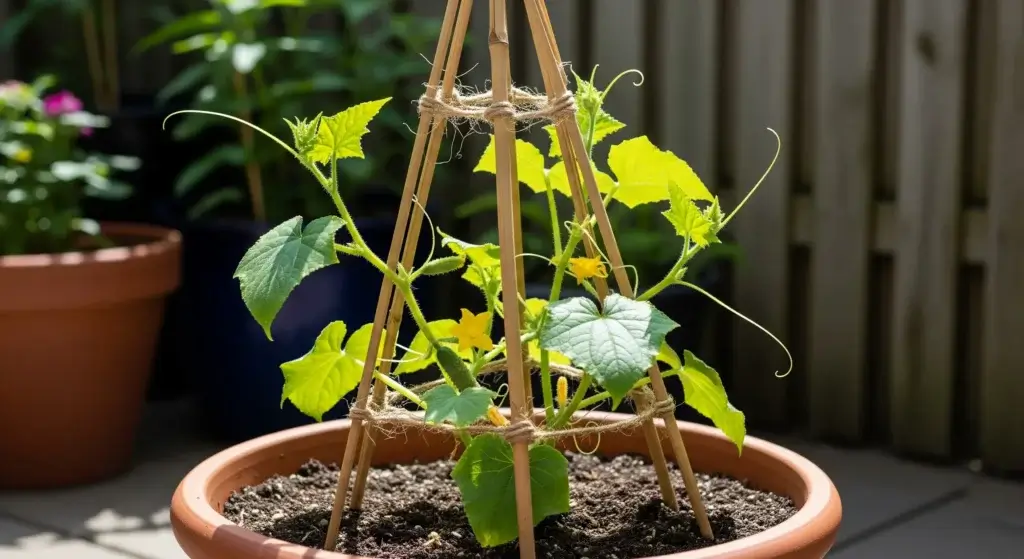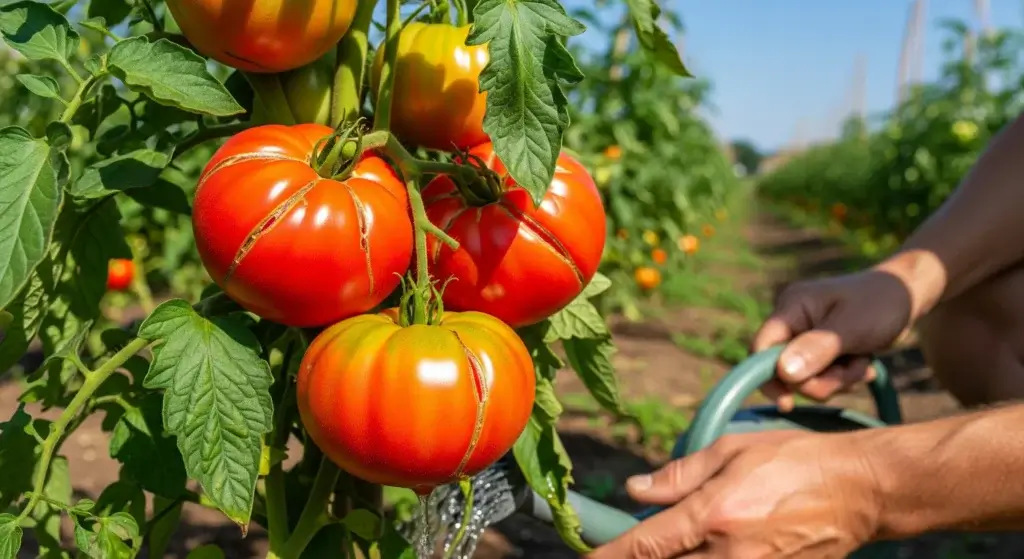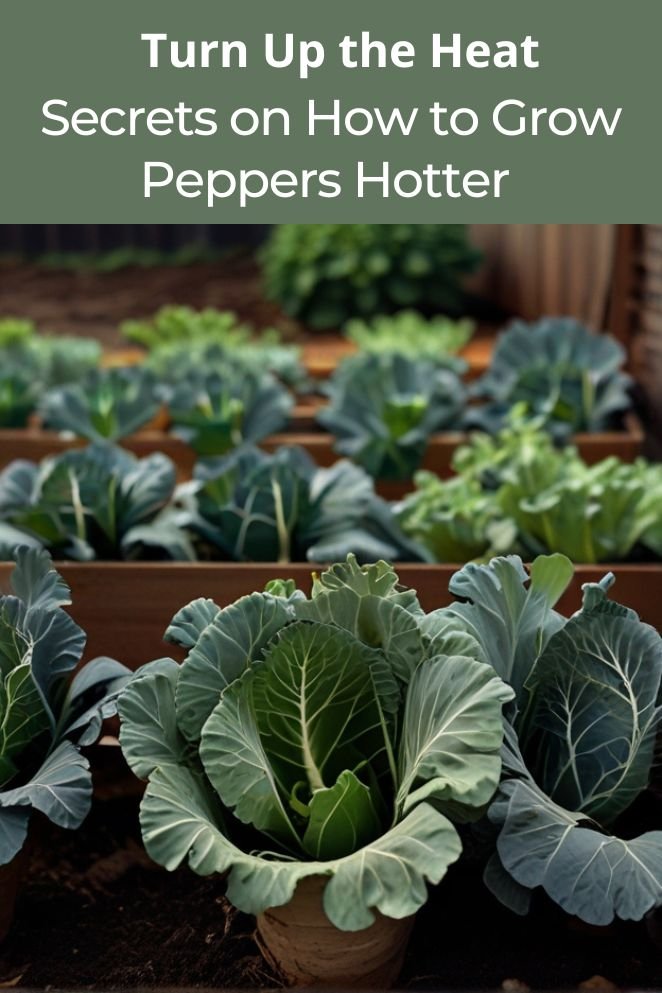
Capsaicin, the compound responsible for the heat in peppers, is produced by the plant as a defense mechanism against pests and diseases.
While some people enjoy the intense heat of peppers, others may find it overwhelming.
Growing peppers that are hotter than usual requires a combination of proper care, specific growing conditions, and a bit of patience.
In this article, we’ll delve into the world of pepper heat and provide you with the knowledge to grow peppers that will set your taste buds ablaze.
Understanding Pepper Heat
Before we delve into cultivating spicier peppers, it’s crucial to grasp the mechanics of pepper heat.
Capsaicin, the compound responsible for that fiery sensation, is actually produced by the pepper plant itself as a defense mechanism against pests and diseases.
Interestingly, the level of capsaicin in a pepper is closely linked to the stress the plant experiences during its growth.
Essentially, the more challenges the plant faces, like drought or extreme temperatures, the more capsaicin it produces.
So, peppers grown under less-than-ideal conditions may pack more heat compared to those grown in optimal environments.
This insight helps us understand why peppers vary in spiciness, reflecting how the plant adapts to its surroundings.
- Read also: How to Grow Onion Bulbs: A Step-by-Step Guide for Harvests
- Read also: The No-Soil Solution: How to Grow Onion in Water
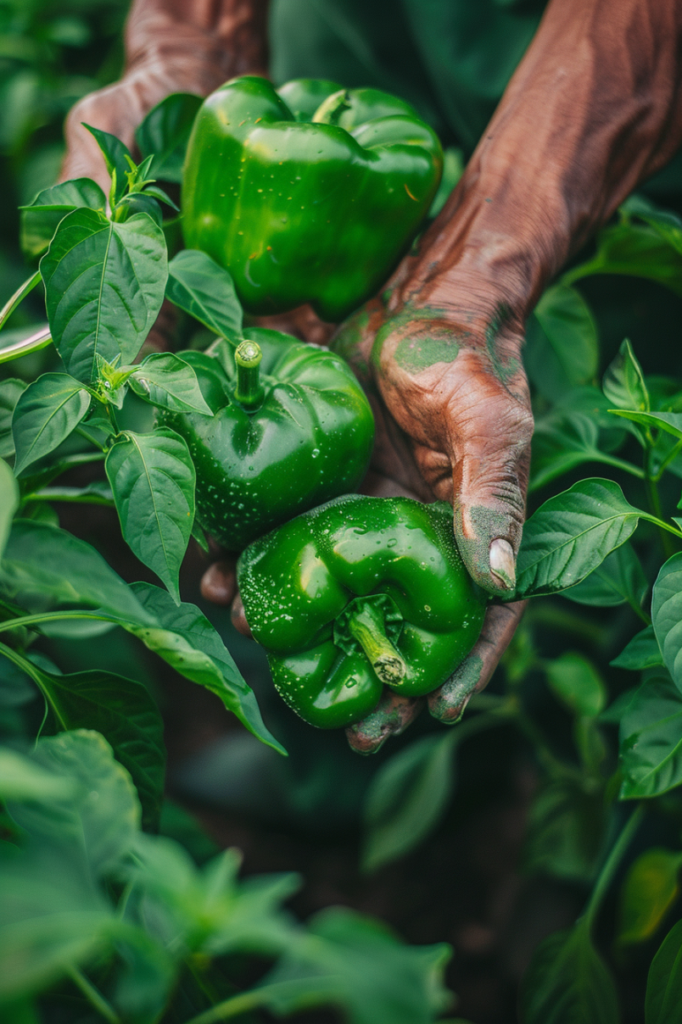
The Secret to Growing Peppers Hotter
So, how do you grow peppers that are hotter than usual?
The answer lies in creating the right conditions for the pepper plant to produce more capsaicin.
Here are some tips to help you achieve this:
Spice up your watering
Creating moderate water stress is a key strategy to boost capsaicin production in peppers.
Allow the soil to dry slightly between waterings to induce stress, prompting the plant to increase its capsaicin levels as a defense mechanism.
Deep watering is essential to ensure the roots receive adequate moisture, but be cautious not to overwater, as this can lead to root rot and other issues.
Sun is your friend
Peppers thrive in full sunlight, which stimulates the production of capsaicin.
Aim for at least 6 hours of direct sunlight daily to maximize heat levels in your peppers.
However, be mindful to protect your plants from intense sunlight during the hottest part of the day to prevent leaf scorching.
Spice up the soil
Well-draining soil is paramount for healthy pepper growth, and enriching the soil with essential nutrients like potassium can further enhance capsaicin production.
Consider incorporating natural sources of calcium, such as crushed eggshells, into the soil to bolster pepper heat.
While research on the effectiveness of eggshells is ongoing, they may contribute to increased capsaicin levels.
Fertilize wisely
While peppers require nutrients for growth, excessive nitrogen can inhibit capsaicin production.
Opt for a balanced fertilizer or one specifically formulated for peppers to provide essential nutrients without compromising heat levels.
Avoid overfertilizing, as this can result in weak and leggy plants that produce fewer peppers.
Picking for potency
For the hottest peppers, allow them to fully ripen on the vine before harvesting.
While green peppers are milder in flavor, fully ripened peppers (red, orange, yellow) boast maximum heat levels.
Patience is key; resist the temptation to harvest prematurely to ensure your peppers reach their full potential in terms of spiciness.
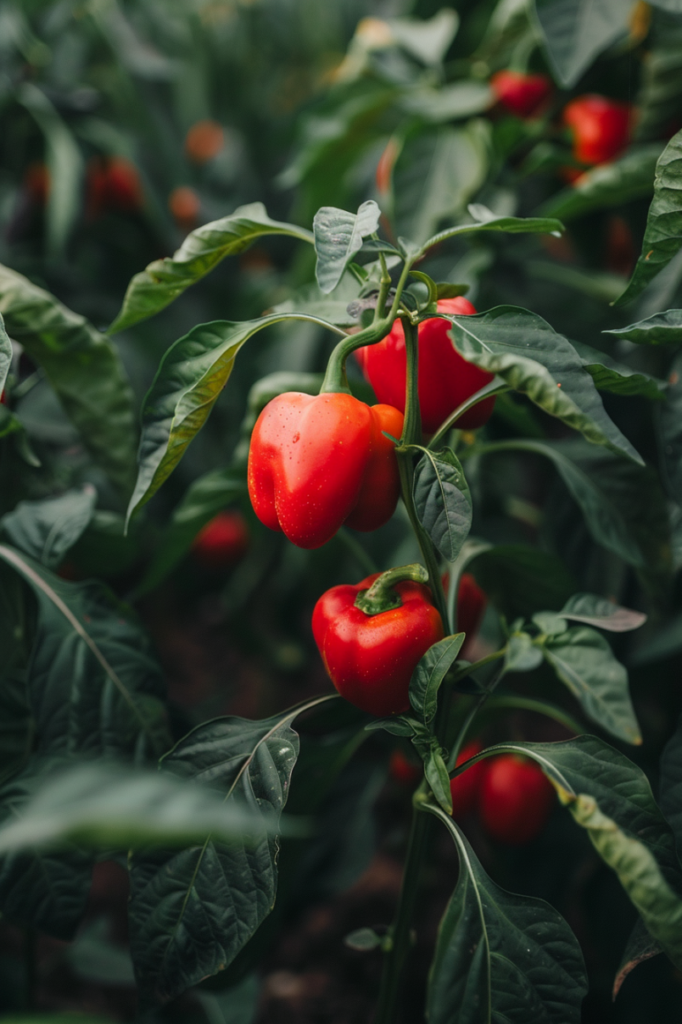
Common Mistakes to Avoid
When growing peppers hotter, there are several common mistakes to avoid:
- Overwatering: While peppers require consistent moisture, overwatering can spell trouble by leading to root rot and other issues.
- Insufficient sunlight: Ensure your pepper plants receive a minimum of 6 hours of direct sunlight daily to promote healthy development and maximize heat levels.
- Inadequate nitrogen: Balanced nutrition is crucial for pepper plants, and insufficient nitrogen can impact both their growth and heat production.
- Cross pollination: Peppers are susceptible to cross-pollination, which can alter their flavor profiles, including their heat levels.
- Overfertilization: While nutrients are essential for pepper growth, overfertilizing can result in weak and leggy plants.
- Inadequate hardening: Seedlings started indoors require a period of hardening to acclimate to outdoor conditions gradually.
- Inadequate pest control: Pests like mice, birds, and deer can pose a threat to pepper plants by damaging or consuming them.
- Inadequate support: Provide adequate support for pepper plants, particularly for larger varieties, to prevent them from bending or breaking under the weight of heavy fruit.
- Inadequate pruning: Regular pruning is essential for pepper plants to encourage bushy growth, stimulate fruiting, and prevent the onset of diseases.
- Inadequate monitoring: Regularly inspect your pepper plants for signs of stress, disease, or pest infestations.
Important Considerations
While growing peppers hotter can be exciting, it’s essential to keep in mind a few important considerations:
Heat doesn’t equal flavor
While the pursuit of hotter peppers can be enticing, it’s important to remember that heat alone does not guarantee superior flavor.
Increasing the capsaicin levels in peppers through stress may alter their flavor profile, potentially leading to bitterness or undesirable taste qualities.
Know your limits
For novice growers venturing into the world of hot peppers, it’s crucial to exercise caution and start with milder varieties.
Gradually acclimating your taste buds to increasing levels of heat allows you to develop a palate for spicy flavors without overwhelming your senses.
Begin with peppers lower on the Scoville scale and progressively explore hotter varieties as your tolerance and appreciation for heat evolve.
Safety first
When handling hot peppers, prioritizing safety is paramount.
The capsaicin oil present in peppers can cause skin irritation and discomfort, particularly in sensitive areas like the eyes or mucous membranes.
Always wear gloves when handling hot peppers to protect your skin from contact with the potent oils.
Additionally, avoid touching your face, eyes, or other sensitive areas after handling peppers, and thoroughly wash your hands with soap and water to remove any traces of capsaicin.
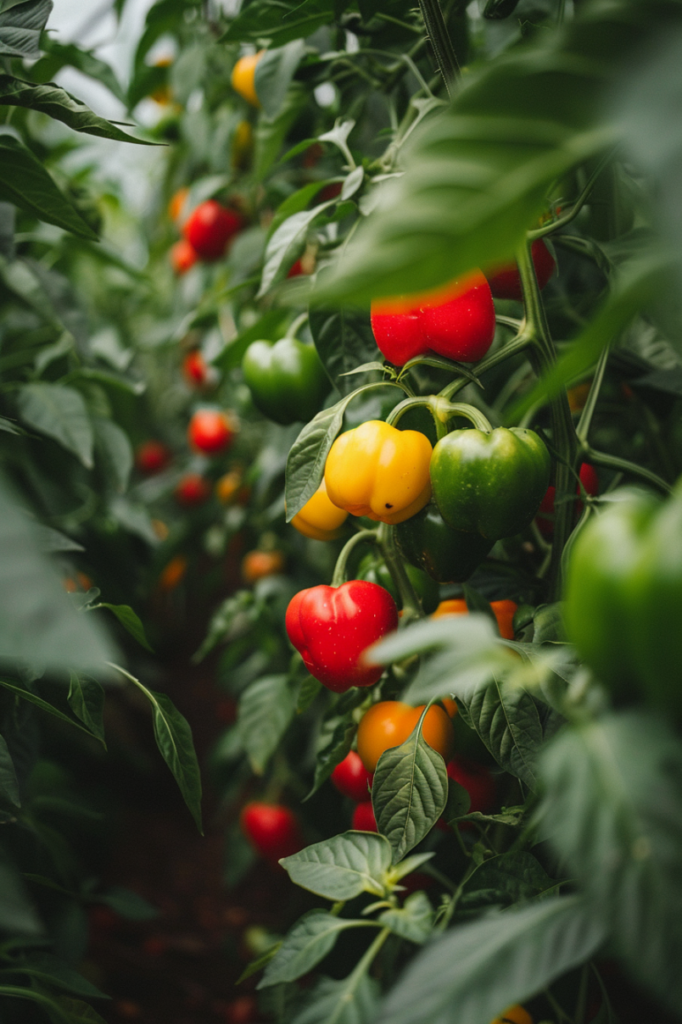
- Read also: A Comprehensive Guide: How To Grow Brussels Sprouts
- Read also: Sprout Your Own: A Guide on How to Grow Onions from Seed
Conclusion
Growing peppers hotter requires a combination of proper care, specific growing conditions, and a bit of patience.
By following the tips outlined in this article, you can increase the capsaicin content in your peppers and enjoy the intense heat they provide.
Remember to always handle hot peppers with care and taste them regularly to ensure they’re not becoming too bitter or unpleasant. Happy growing!

